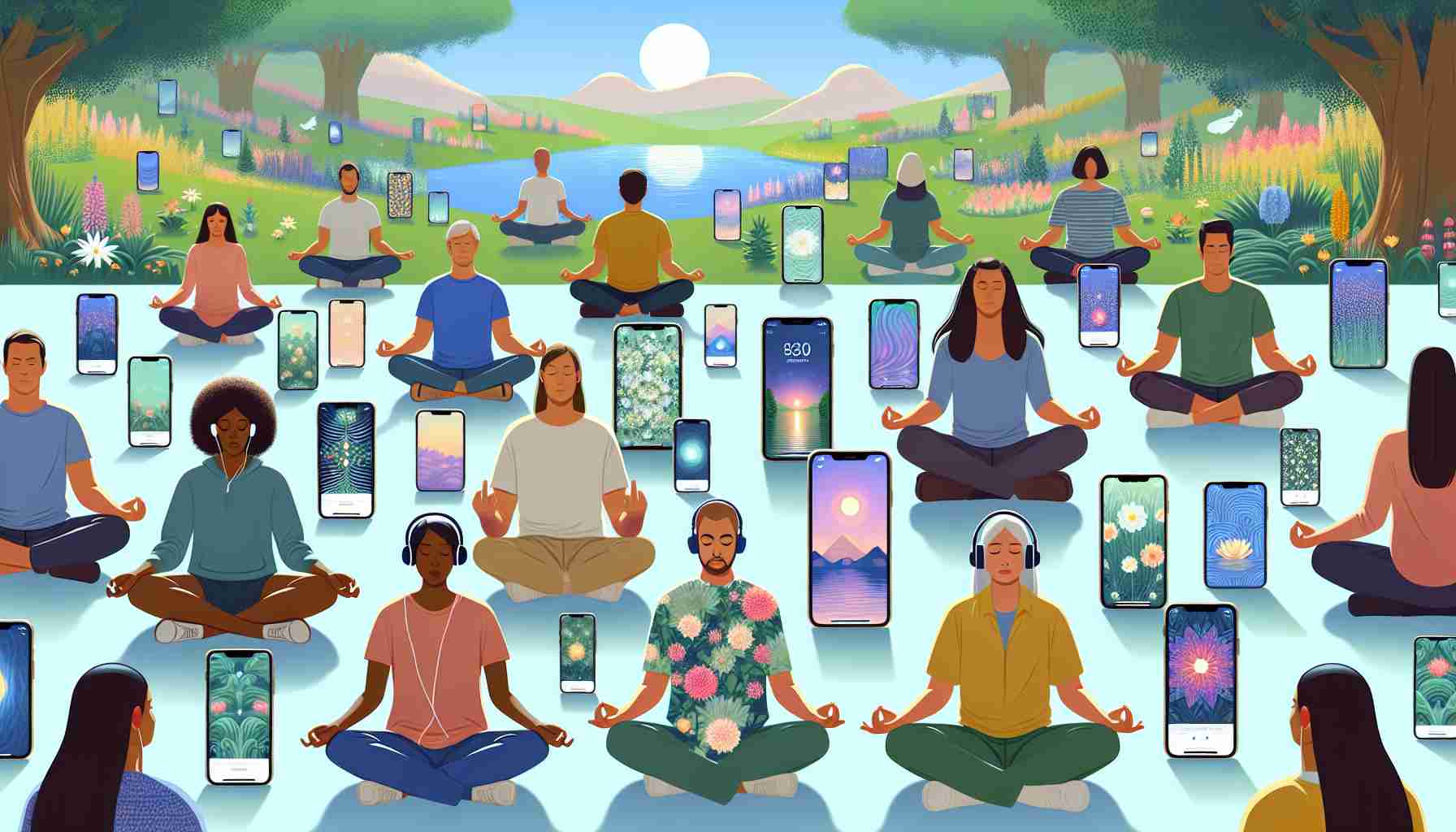In a world where the pace only gets faster, the quest for serenity has driven many to seek solace in digital mindfulness. Meditation apps are now a common fixture on smartphones worldwide, offering an array of features to help users cultivate mental well-being amidst the chaos of modern life. These virtual havens of tranquility provide guided sessions, soothing soundscapes, and customized experiences, and are witnessing an unprecedented surge in downloads.
Calm has established itself as a go-to destination, tapping into the collective need for respite with a robust selection of content focused on stress management, better sleep, and mental wellness enhancements. Its versatility in serving both novices and experienced practitioners has made it an invaluable resource for many.
The app Headspace has carved out its niche by emphasizing mindful meditation as a remedy for stress and sleep disturbances. It furnishes users with a myriad of practices, including breathwork and daily meditation exercises, thereby transforming smartphones into personal retreats for anytime access.
Meditopia steps beyond immediate remedies and delves into comprehensive meditation and breathing techniques. Accessible in multiple languages, it targets a wide spectrum of life experiences, advocating for sustained mental health and inner contentment.
Championing free access, Insight Timer offers an extensive collection of guided meditations, enriching talks, and calming music. It’s a hub for those aiming to deepen their meditation practice and is continually updated, ensuring fresh content for its global user base.
Let’s Meditate answers the call for straightforward simplicity with its ad-free, sign-up-free platform, emphasizing ease of use and immediate access to a range of meditation topics suitable for all durations and lifestyles.
Through its engaging and user-friendly approach, Serenity introduces users to meditation and mindfulness techniques designed to instill a sense of peace and joy. It’s a resource that stands strong, particularly for those taking their initial steps into the practice.
Developed by psychologists and educators, Smiling Mind is tailored to build mental resilience across different age groups, providing mood tracking and dark mode features for a comfortable user experience.
Balance adopts a personalized approach, crafting meditation programs tailored to individual goals and aims, seeking to improve mental health and focus while offering a year of free access.
The not-for-profit app Medito focuses on establishing a peaceful mindset through guided meditations and mindfulness practices, supporting courses for varying expertise levels and backed by institutions like UCLA.
Lastly, Aura combines personalized meditations with mindfulness coaching and cognitive-behavioral therapy (CBT) techniques to assist users in managing stress and enhancing sleep quality, featuring an extensive library of content for overall self-growth.
The rise of meditation apps has significantly impacted the way people approach mindfulness and stress reduction. Here are additional facts, key questions, challenges, advantages, disadvantages, and related links that have not been mentioned in the article above:
Additional Facts:
– Market research indicates that the global wellness app market size could witness considerable growth in the coming years, with meditation apps constituting a significant portion.
– These apps often use machine learning algorithms to tailor recommendations and track users’ progress over time.
– Certain meditation apps have partnerships with corporations to promote employee wellbeing, integrating mindfulness into corporate wellness programs.
Key Questions:
1. What long-term effects can the regular usage of meditation apps have on an individual’s mental health?
2. How do meditation apps ensure the privacy of their users’ data?
3. What measures do meditation apps take to cater to users with disabilities?
Key Challenges and Controversies:
– There is an ongoing debate regarding the efficacy of app-based meditation compared to traditional meditation practices or in-person guided sessions.
– There are concerns about the privacy of sensitive user data, such as mental health information that these apps collect.
– Accessibility features for the visually and hearing impaired are not always prioritarily integrated, which raises inclusivity issues.
Advantages:
– Offers convenience and accessibility – People can meditate anywhere and anytime.
– Variety of options – Users can explore different meditation techniques and find what works best for them.
– Tracking Progress – Some apps provide features to track the user’s meditation history and progress.
Disadvantages:
– Over-reliance – It could potentially make users reliant on the app for meditation, rather than learning to meditate independently.
– Costs – While some apps are free, many require a subscription to unlock full features.
– Commercialization concerns – The commercial aspect of these apps can be seen as counterintuitive to the non-materialistic philosophy of mindfulness.
Suggested Related Links:
– For information on the benefits of meditation: Mayo Clinic
– For insights into mental health and technology: Psychology Today
– For information on data privacy and digital wellbeing: Electronic Frontier Foundation
With the rise of meditation apps, users must weigh the convenience and variety they offer against the costs and the potential for over-reliance on technology for mental wellness. Despite these concerns, meditation apps play a vital role in making mindfulness practices more accessible to people around the world.
